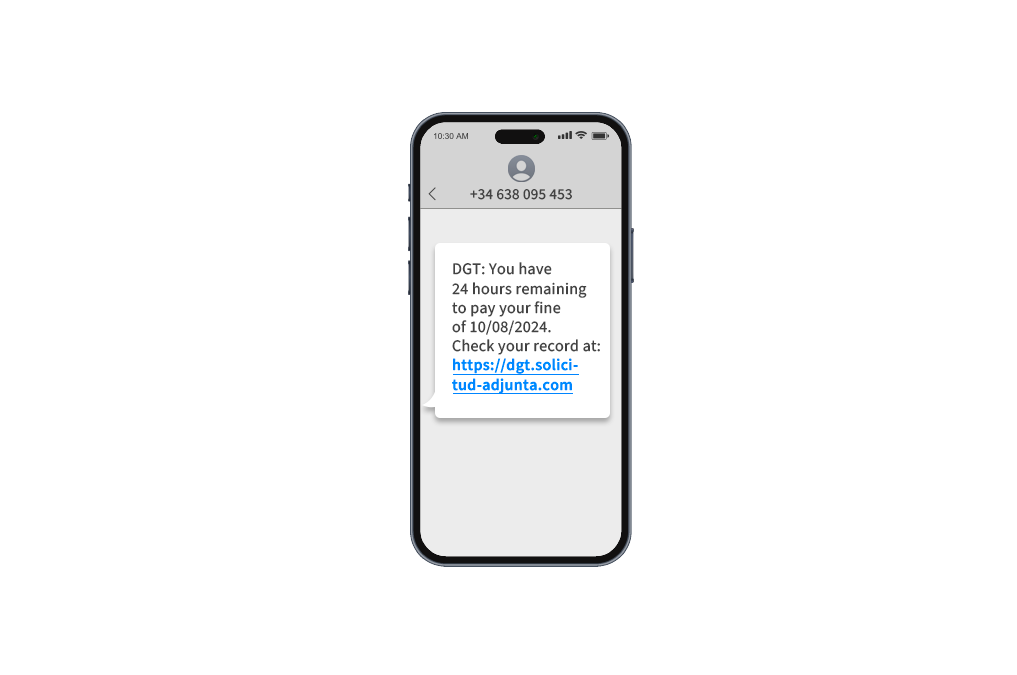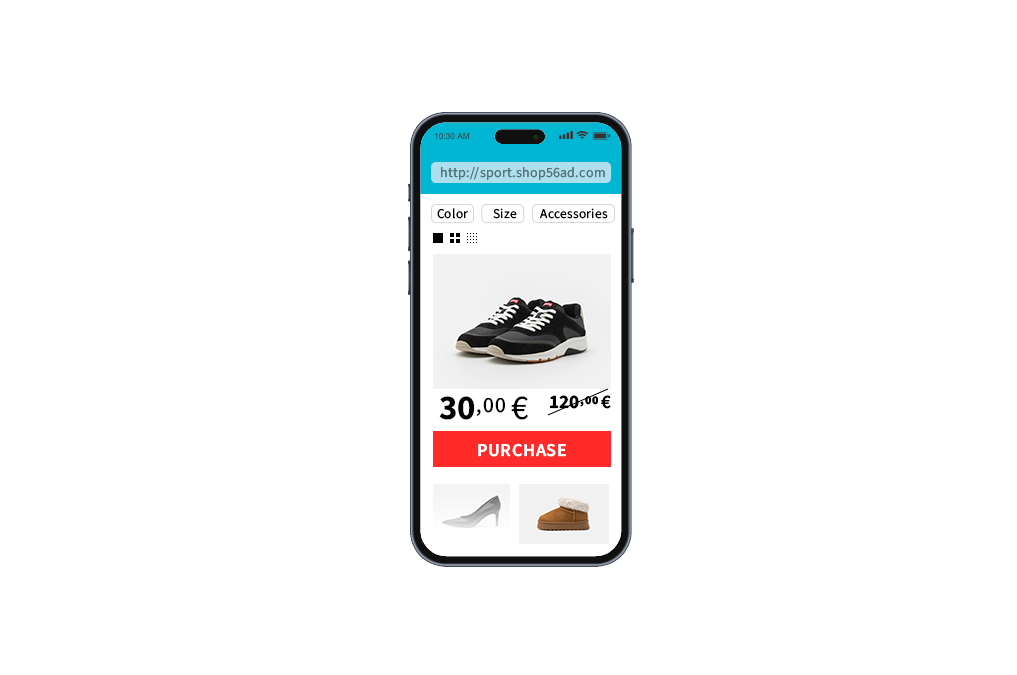Discover the most common types of cyberattacks

Phishing
One of the most common attacks. You receive an email that pretends to be a company or authority that asks you to give them personal, professional or financial information, usually to solve a problem that may affect you urgently. The people who do this use the company's image and the message can often send you to a fake website.
Some tips:
- Check the sender and be wary of emails that ask for passwords or banking details.
- Avoid clicking on links, replying, or downloading attachments if you haven't requested them.
Through BIZUM
The Bizum feature of the MoraBanc app is widely used and practical, but some cybercriminals take advantage of it to make fraud attempts by sending messages requesting money, which some customers may end up accepting without realising it.
Some tips:
- Verify the profile of the user you are interacting with, especially if they are requesting payment.
- When using Bizum, make sure to review the data for all transactions before validating them.
- Pay attention to all the messages you receive from MoraBanc and be suspicious if you do not recognise any of the transactions.


Smishing
Cybercriminals send us a text message (SMS) to obtain our data. They include a web link or a telephone number that can be called to verify, update or prevent us from being unsubscribed from a service.
Some tips:
- Don't fall into the trap of urgency and don't click on links, attachments or images without verifying the sender.
- Never give your PIN, bank password or other credentials by SMS.
Vishing
Vishing is a telephone fraud where they call you to try to obtain personal information. Scammers may have basic information about the victim that they have collected on the Internet and that will help them create a prior bond with the victim to gain their trust.
Some tips:
- If you receive calls that generate an emergency, be suspicious.
- Never give sensitive data or information over the phone.
- During the call you may be asked to download files or click on links. Don't do it.


In online shopping
Most websites have reliable platforms so that we can make purchases, but sometimes we can come across websites that make us fraudulent offers and take advantage of the sales process to keep your payment details and access your money.
Some tips:
- Be suspicious of offers that are too good to be true and always check that the online store has "https" and a digital certificate.
- Research the store's reputation: look for reviews and make sure the page design is consistent.
- Use secure payment gateways like RedSys or services like PayPal to protect your data.
CEO Fraud
Most people react quickly when they receive an email from a senior manager or person in charge of their company. Attackers take advantage of this to send fake emails or make calls that may request sensitive data or request money transfers to the cybercriminal's accounts.
Some tips
- Be suspicious of these types of requests, especially if they are unusual.
- Carefully examine the sender of the message and grammatical errors.
- If in doubt, check with the sender using another communication channel.

And remember:
- MoraBanc will never ask you for confidential information by email or via SMS.
- Always monitor the personal information you post online. You don't know who might see it or for what purpose.
- Always be wary of transactions that you are not used to doing and that come to you with a sense of urgency.
- If in doubt, do nothing and confirm the information with MoraBanc using any of the official communication channels.


